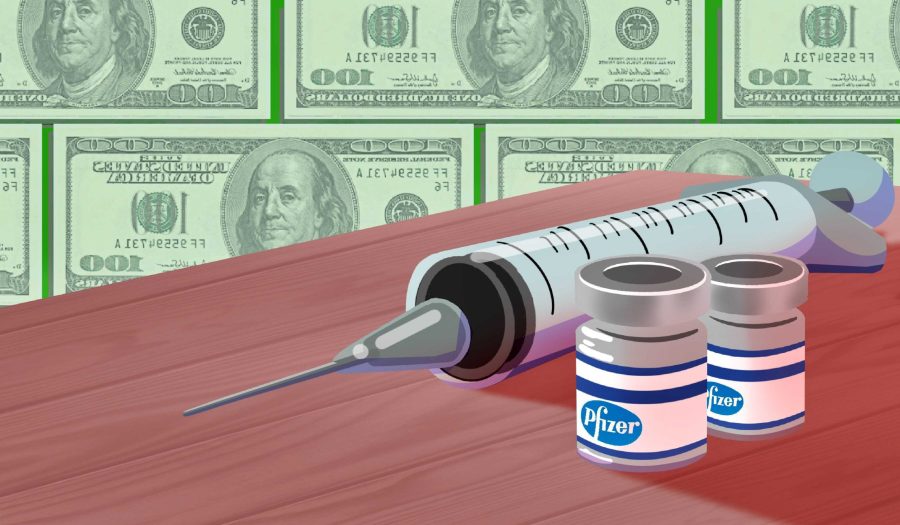It feels like a once unreachable dream come true now that COVID-19 vaccines have arrived so quickly on the market. After all, the average time to develop a vaccine takes about 10-15 years. It is astonishing to think that we are at the point where we are able to book vaccine appointments with a single click. For us UC San Diego students, this most likely means in-person classes, sports, clubs, and meeting new friends. The UCSD administration recently announced that they plan to return to full capacity, in-person classes in the fall. For those who go to school in countries that aren’t the U.S. or the 20 other countries receiving the vaccine, this means virtually no change as Pfizer remains reluctant to give vaccines to countries that won’t make a profit. Although Pfizer has rapidly developed a vaccine, vaccines and medicine in general do no good unless there is equal access to them.
Pfizer was the first place winner in the race to develop a vaccine. Fast development typically requires an incentive and is a result of market competition. In other words, when there’s competition, companies are going to want to be the first one to develop the medicine because they have some sort of financial benefit or prospect in sight. The company made the decision to profit off of their vaccine and have reported more than $3 billion in revenue in the beginning of this year. There are many people out there that would deem a company profiting off of a much needed vaccine immoral. However, whether you would like to admit it or not, we wouldn’t have had a vaccine this fast if it weren’t for big pharma and market competition. Without the financial incentive to make a vaccine, it’s very difficult to get the process of creating one to go quickly and smoothly. According to the Pew Research Center, 98 percent of scientists in basic research and 84 percent of scientists in applied research see a lack of funding as a serious impediment to research. High quality research and medicine needs money, and market competition for who will get to the finish line first creates a fast track to a vaccine.
However, this is only the case if the vaccine will actually be available and accessible to everyone. No matter how fast a vaccine is made, if the people that need it aren’t able to access it, then creating the vaccine in the first place does no good. Recently, Pfzier has lent itself to be an excellent example of this big pharma drawback, as it has been giving vaccine priority to wealthier countries over poorer ones.
This is wrong for many reasons, the first being that poor countries need the vaccines the most. As much as we like to say that we’re all in this pandemic together, it is undeniable that underdeveloped countries have been hit the hardest from COVID-19, especially economically, as 69 percent of respondents from poorer countries reported a decrease in income compared to 45 percent from wealthier countries. In order to stop the pandemic as a whole, vaccines should be given out to everyone that contributes to herd immunity, not just the select wealthy countries that Pfizer deems acceptable as a recipient for the vaccine. Currently, Pfizer is reluctant to share its vaccines with Latin American countries such as Argentina and Brazil. Additionally, the point of market competition is to get a vaccine out as fast as possible. However, if the vaccine comes at a price of not offering it to some countries because of the lack of profit, then market competition has no real benefit. Financial incentive is an essential part of the path to innovative medicine, however once profit overcomes the incentive of enhancing the health of people who need it, big pharma becomes a dangerous game that only those with money can play.
Pfizer is a perfect example of the one step forward, two steps backward progress the pharmaceutical industry is making. It’s easy to become impatient with the circumstances of the pandemic and want the fastest way to normalcy as possible. However, you have to ask yourself, at what cost? Does the vaccine’s accessibility to those who are privileged enough to get it outweigh the inaccessibility to those who need it the most? By answering yes to this question, deeply rooted classism and the separation of low and high income communities will continue to grow, and by condoning this behavior set forward by Pfizer, it is as if we are saying that we are okay with that.
Art by Nicholas Regli for the UC San Diego Guardian.













